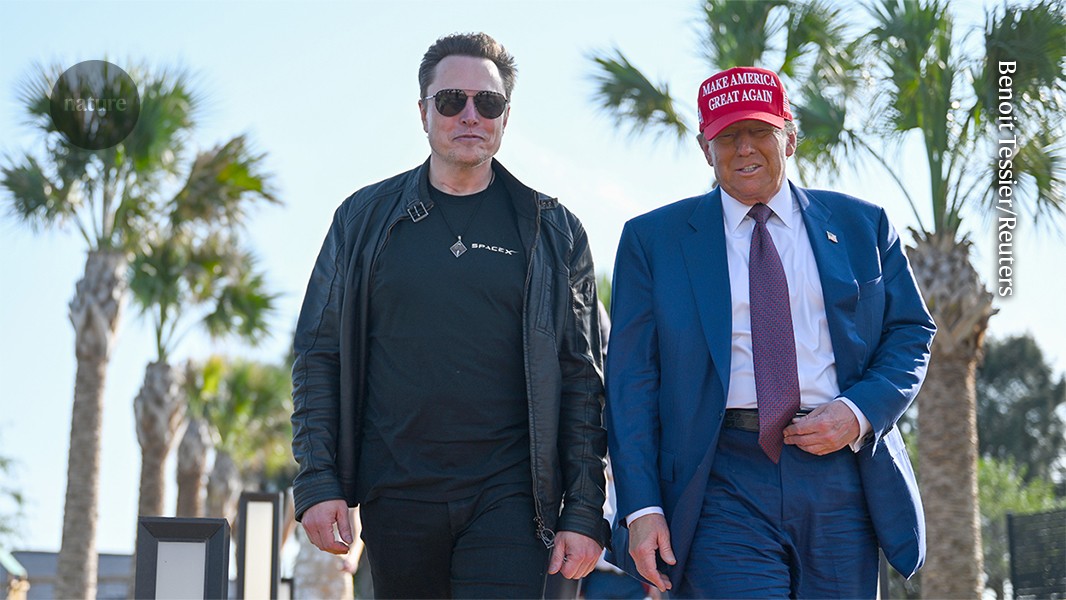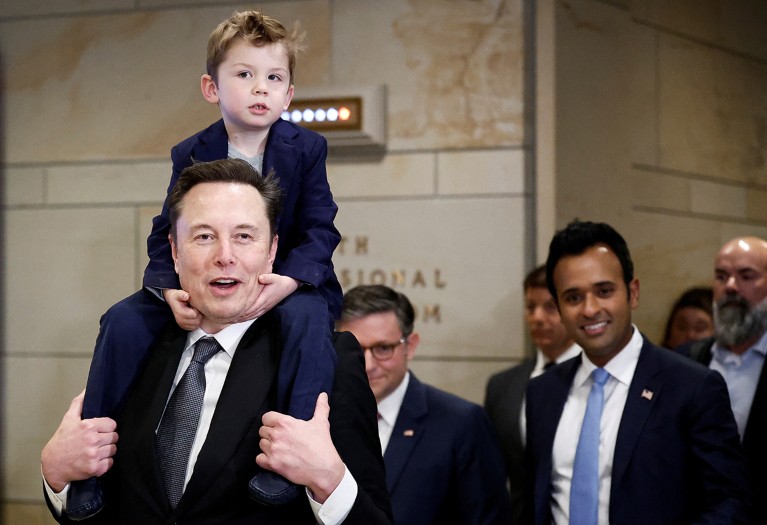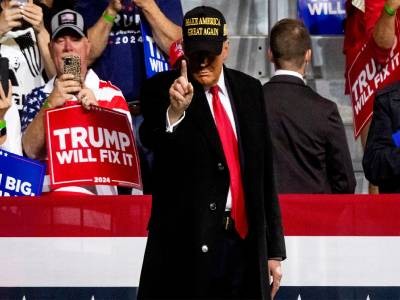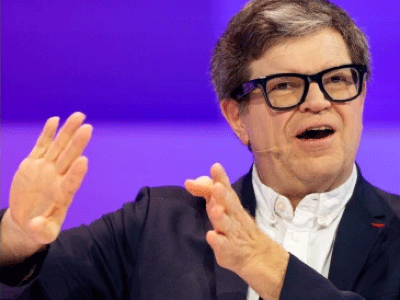Tech
How Elon Musk’s partnership with Trump could shape science in the US — and beyond

Billionaire and entrepreneur Elon Musk (left) has become a confidante for US president-elect Donald Trump (right).Credit: Brandon Bell/Getty
Billionaire Elon Musk earned his reputation as an innovator at the forefront of science and technology, revolutionizing electric vehicles and space travel. But in the past several months, he has emerged as a major political figure in the United States, pouring more than US$250 million into Republican Donald Trump’s presidential campaign and using his social-media platform X (formerly Twitter) to question vaccine safety and climate science.
What Trump’s election win could mean for AI, climate and health
Now the entrepreneur is joining forces with president-elect Trump on a mission to downsize the US government — including potentially slashing the budgets and workforces of science agencies, which Musk’s companies Tesla and SpaceX relied on for government contracts to grow and thrive. It has left many in the research community raising questions about his political influence and what it means for science in the United States and beyond.
Although details about the US advisory body that Musk will help to lead, named the Department of Government Efficiency (DOGE), are scant, the billionaire, along with his co-chair, biotech entrepreneur Vivek Ramaswamy, laid out some of their intentions in a guest editorial in the Wall Street Journal last month. “Unelected bureaucrats” — a category that includes tens of thousands of scientists and other specialists — represent an “existential threat to our republic” owing to the unnecessary regulations on industry that they have helped to implement, the duo wrote. The pair then promised “mass headcount reductions across the federal bureaucracy”.
Musk has not responded to repeated requests for comment from Nature.
DOGE will undoubtedly face headwinds in achieving its cuts, policy observers who spoke to Nature say. Few, however, doubt that Musk will have far-reaching influence on science in the United States and beyond.
Shrinking the government
Conflicts of interest abound for Musk as a government adviser. The world’s richest man, Musk heads companies rooted in science, including private aerospace firm SpaceX, electric-vehicle company Tesla and brain-implant firm Neuralink. He has complained that US innovation is being held back by a “mountain of choking regulations” — government rules on everything from labour practices to data privacy that have repeatedly ensnared his own companies. In February 2022, for instance, Tesla agreed to pay a $275,000 fine after inspectors at the US Environmental Protection Agency (EPA) found that one of its manufacturing plants in Fremont, California, violated air-pollution regulations.
Musk’s deregulatory vision aligns with that of president-elect Trump. For instance, many expect Trump to roll back or weaken rules designed to curb pollution, protect public health and limit climate change when he takes office, much as he did during his first term in 2017–21. Whether government regulation actually hinders economic and technological innovation is a complex question, however.

Musk (left) transports his son as he and biotech entrepreneur Vivek Ramaswamy (right) visit Capitol Hill to meet with members of the US Congress on 5 December.Credit: Benoit Tessier/Reuters
Some research supports the idea that it can discourage growth or make it harder for big firms to acquire too much power by snapping up technology from start-up firms1,2. Many venture capitalists in places such as Silicon Valley, California, have focused on the latter restriction, and hope that the incoming Trump administration will relax rules governing mergers and acquisitions.
There are areas in which streamlining regulations makes sense, says Robert Atkinson, an economist and president of the Information Technology and Innovation Foundation in Washington DC. Environmental regulations, for instance, might protect public health by requiring firms to study the environmental impacts of their activities and limiting pollution, but they can also slow deployment of crucial clean-energy projects and infrastructure.
The real question lies in how regulations are crafted, says Scott Stern, an economist at the Massachusetts Institute of Technology in Cambridge. “Clear and stable regulation arguably provides the right incentives for innovation,” he says. For instance, clear rules governing drug development protect both public health and intellectual property, fostering private investment.
The danger is that efforts to scale back government regulations, as well as spending, will go too far, Atkinson says. “If we … just slash the federal enterprise, at the end of the day, we’re going to get less innovation, not more.”
A new political dynamic
In various posts and forums, Musk and Ramaswamy have said they want to cut 75% of federal workers and an eye-watering $2 trillion of government spending, but policy watchers say that goal is practically impossible. The entire federal budget is around $6.8 trillion, and most of that goes to mandatory — and politically popular — social programmes that provide health care and retirement benefits to millions of people. The discretionary portion, which funds the entire federal government, including science agencies, is $1.7 trillion. And roughly half of that is dedicated to defence spending, a pot of money that is unlikely to be cut by Republicans.
What is science? Tech heavyweights brawl over definition
The US Congress has resisted efforts to cut back or even eliminate federal agencies in the past. During Trump’s first term, for instance, Republican lawmakers joined Democrats in rejecting his call to slash the budgets of the EPA and other science agencies. In some cases, budgets even increased.
The political dynamic is different today, however, with Trump’s election victory and Republicans set to control both chambers of Congress next year. Republicans in the lower chamber, the House of Representatives, are already planning to create a panel to identify spending and programme cuts in parallel with DOGE, which as an advisory body lacks the authority to implement its own recommendations. Science agencies could be vulnerable, especially those associated with environmental and social sciences that don’t align with the Trump administration’s agenda, policy specialists say.











